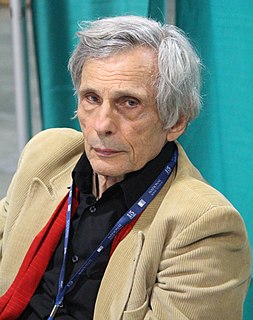A Quote by John Updike
The writers we tend to universally admire, like Beckett, or Kafka, or TS Eliot, are not very prolific.
Related Quotes
When I was a very young student I loved and admired the work of Sam Beckett, who is famously pessimistic, and whose writing is an extraordinary examination of emptiness. I wanted to be like Beckett. I don't have the same attitude toward the world, I'm naturally optimistic, and so of course I could never be like Beckett. You can't force yourself to become like someone you admire.
Kafka is one of my very favorite writers. Kafka's fictional world is already so complete that trying to follow in his steps is not just pointless, but quite risky, too. What I see myself doing, rather, is writing novels where, in my own way, I dismantle the fictional world of Kafka that itself dismantled the existing novelistic system.
The writers I care about most and never grow tired of are: Shakespeare, Swift, Fielding, Dickens, Charles Reade, Flaubert and, among modern writers, James Joyce, T. S. Eliot and D. H. Lawrence. But I believe the modern writer who has influenced me most is Somerset Maugham, whom I admire immensely for his power of telling a story straightforwardly and without frills.
The way we learn to write is the way we learn to talk: We listen to others and start mimicking speech, and that's how we come to become speakers. Writers you admire, you admire the way they plot, you admire the way they create a character, you admire the way they put a sentence together, those are the writers you should be reading.






































